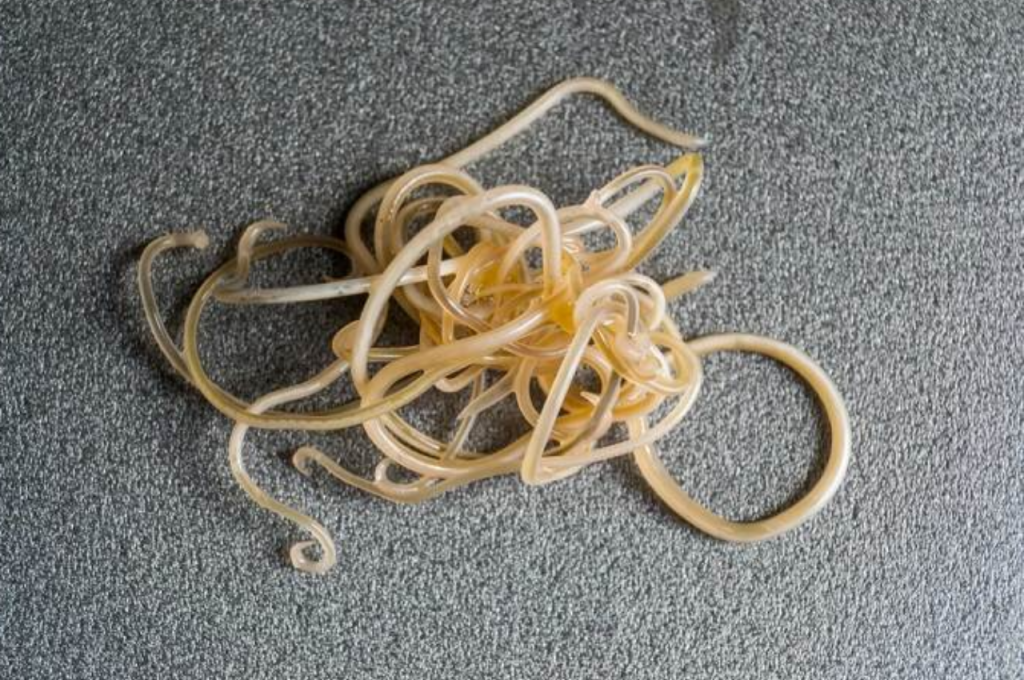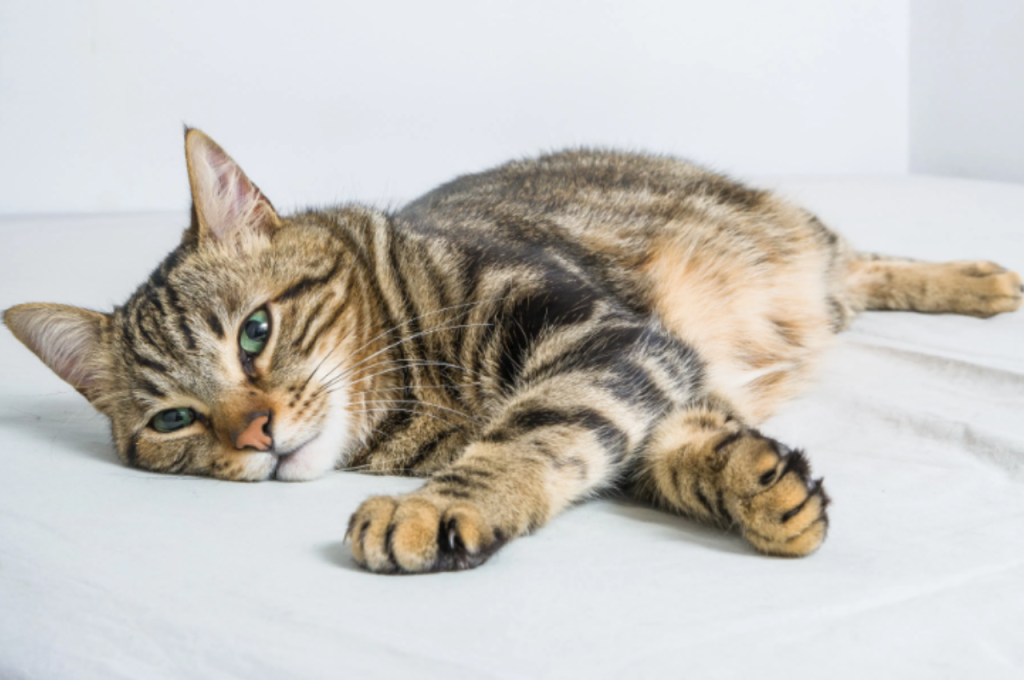Cats can be infected with different types of worms, including roundworms, tapeworms, hookworms, and heartworms. These worms can cause various health issues in cats.
Cats are susceptible to various types of worms, such as roundworms, tapeworms, hookworms, and heartworms. These parasites can lead to a range of health problems in felines. They can affect cats of all ages, and it’s essential for pet owners to be aware of the signs of worm infestations and seek appropriate treatment. Understanding the different types of worms in cats and their impact is crucial for maintaining feline health and well-being. We will explore the various types of worms that can affect cats and discuss preventive measures and treatment options to keep our feline friends healthy and happy.
Introduction to Feline Parasites
Feline parasites can pose a threat to cats, with different types of worms being a common concern. These include roundworms, tapeworms, and hookworms, which can cause various health issues. Regular deworming and preventive measures are essential to protect the feline friends from these parasites.

Cats are prone to different types of worms, known as feline parasites, that can cause various health issues. These parasites can affect cats of all ages, making it crucial for pet owners to be aware of the symptoms and the importance of regular deworming.
Common Symptoms of Worm Infestation
- Visible worms in feces or around the anal area.
- Weight loss and poor coat condition.
- Vomiting or diarrhea containing worms.
- Bloated abdomen or a change in appetite.
Importance of Regular Deworming
- Prevents serious health issues in cats.
- Protects humans from zoonotic infections.
- Ensures optimal health and well-being of the cat.
Roundworms: The Silent Invaders
Roundworms are a common type of worm that can infect cats. These silent invaders can cause various health issues, so it’s important to be aware of the different types of worms in cats and take appropriate preventive measures. Safeguard your furry friends by staying informed and seeking veterinary guidance.
Lifecycle of Roundworms
Roundworms are a common internal parasite that can infect cats of all ages, including kittens. These silent invaders are known for their ability to reproduce rapidly, leading to infestations if left untreated. Understanding the lifecycle of roundworms is crucial in preventing and controlling their spread.
The lifecycle of roundworms begins when a cat ingests the eggs, either through contaminated soil, or water, or from consuming infected prey such as rodents or birds. Once inside the cat’s digestive system, the eggs hatch and the larvae migrate through the liver and lungs, eventually ending up in the small intestine.
Inside the small intestine, the larvae mature into adult roundworms, which can grow up to several inches in length. These adult worms then reproduce by laying thousands of microscopic eggs, which are passed out of the cat’s body through their feces. The cycle continues when another cat or host accidentally ingests the infected feces, completing the lifecycle of roundworms.
Health Risks and Treatment
While roundworm infestations may not always cause noticeable symptoms, they can pose serious health risks to both cats and humans. Kittens, in particular, are more vulnerable to the effects of roundworms due to their weaker immune systems.
Common health risks associated with roundworm infestations include:
- Weight loss and poor growth in kittens
- Vomiting and diarrhea
- Abdominal swelling
- Dull coat and poor overall condition
- Intestinal blockages in severe cases
If you suspect that your cat may have roundworms, it is important to consult with a veterinarian for proper diagnosis and treatment. Veterinarians can perform fecal tests to confirm the presence of roundworms and prescribe appropriate medications to eliminate the parasites.
Treatment typically involves administering deworming medications, which can be in the form of oral tablets, liquids, or topical solutions. Depending on the severity of the infestation, multiple doses may be required to completely eradicate the roundworms.
Prevention is key in managing roundworm infestations. Regular deworming treatments, especially for kittens, can help prevent the spread of these parasites. Maintaining good hygiene practices, such as cleaning litter boxes regularly and washing hands after handling cats, also reduce the risk of transmission to humans.
By understanding the lifecycle of roundworms and the health risks they pose, cat owners can take proactive measures to protect their feline companions and ensure a safe and healthy environment for all.
Tapeworms: The Segmented Parasites
Tapeworms are segmented parasites that can infect cats. These parasites consist of a head, neck, and a series of segments called proglottids. Each proglottid contains eggs, allowing tapeworms to reproduce and spread within the host. Understanding how to identify tapeworm infections and implementing prevention and eradication strategies is crucial for maintaining feline health.
Identifying Tapeworm Infections
Telltale signs of tapeworm infection in cats include rice-like segments in the feces or around the anal area. Cats may also display symptoms such as weight loss, vomiting, or irritability. Upon suspicion of tapeworm infestation, it is essential to consult a veterinarian for an accurate diagnosis.
Prevention and Eradication Strategies
Preventing tapeworm infections involves controlling flea infestations, as fleas are a common intermediate host for tapeworms. Using monthly flea preventatives and regular grooming can help minimize the risk of tapeworm infestation. Additionally, practicing good hygiene and keeping the environment clean can aid in preventing the spread of tapeworms.
Hookworms: The Blood Feeders
Hookworms are blood-sucking parasites that can infect cats, causing anemia and other health issues.
Transmission and Lifecycle
Hookworms are commonly transmitted to cats through ingestion of infected feces or skin penetration.
Effective Control Measures
Regular deworming, maintaining good hygiene, and minimizing contact with contaminated soil are key to controlling hookworm infections in cats.
Heartworms: The Internal Threat
Unseen internal threats like heartworms can affect cats. Understanding different types of worms in cats is crucial for prevention. Regular vet check-ups and preventative measures are key to keeping cats healthy and safe from internal parasites.
Understanding Heartworm Disease
Heartworms pose a serious internal threat to cats. These parasites are transmitted through mosquito bites and can lead to severe health complications if left untreated. Understanding the basics of heartworm disease is crucial in ensuring the well-being of your feline friend.

Heartworm disease is caused by a parasitic worm called Dirofilaria immitis. When an infected mosquito bites a cat, it transfers heartworm larvae into the bloodstream. Over time, these larvae mature into adult worms, primarily residing in the heart and lungs. As the infestation progresses, it can lead to heart failure, lung disease, and even death.
Unfortunately, heartworm disease in cats often goes undiagnosed or is mistaken for other conditions, as symptoms can be subtle or easily overlooked. Cats may display coughing, difficulty breathing, weight loss, or lethargy. In some cases, sudden collapse or fainting can occur.
Preventative Care and Management
Prevention is key when it comes to protecting your cat from heartworm disease. Taking proactive measures can significantly reduce the risk of infection and ensure your feline companion’s well-being. Consult with your veterinarian to develop an effective preventative care plan.
One of the most common preventive methods is administering heartworm preventives, which come in various forms such as topical treatments or oral medications. These preventives work by killing heartworm larvae before they can develop into adult worms.
Regular check-ups and screenings are crucial for early detection of heartworm disease. While there is no specific treatment for heartworms in cats, early diagnosis can help manage the symptoms and provide supportive care to improve your cat’s quality of life.
In conclusion, heartworms pose a significant internal threat to cats. Understanding the disease and implementing preventative measures are essential in safeguarding your feline friend’s health. By staying proactive and working closely with your veterinarian, you can ensure that your beloved cat remains heartworm-free and lives a happy, healthy life.
Whipworms: The Rare Occurrence
Whipworms are a rare occurrence in cats compared to other types of worms. However, they can still cause health problems such as diarrhea, weight loss, and anemia. It’s important to have your cat regularly checked by a veterinarian and treated for any type of worm infestation.
Whipworms are a rare occurrence in cats, but they can still pose a serious health risk. These worms, also known as Trichuris, live in the large intestine and can cause severe inflammation and damage to the intestinal lining. In this section, we will discuss the symptoms, diagnosis, and treatment protocols for whipworms in cats.
Symptoms and Diagnosis
The symptoms of whipworm infestation in cats can be difficult to detect, as they are similar to those of other gastrointestinal issues. Some common symptoms include:
- Diarrhea
- Weight loss
- Dehydration
- Abdominal pain
- Rectal prolapse
If you notice any of these symptoms in your cat, it’s important to take them to the vet for a proper diagnosis. The vet will perform a fecal exam to check for the presence of whipworm eggs. However, because whipworms can be difficult to detect, multiple fecal exams may be necessary to confirm the diagnosis.
Treatment Protocols
Once a diagnosis of whipworm infestation has been confirmed, your vet will typically prescribe a deworming medication to eliminate the worms. Depending on the severity of the infestation, multiple rounds of medication may be necessary. In addition to medication, it’s important to take steps to prevent future infestations. This can include keeping your cat’s living area clean and free of fecal matter, as well as using preventative medications to protect against other types of worms. In conclusion, although whipworm infestations are rare in cats, they can still cause serious health problems. If you notice any symptoms of a gastrointestinal issue in your cat, it’s important to take them to the vet for a proper diagnosis and treatment.
By following your vet’s advice and taking steps to prevent future infestations, you can help keep your cat healthy and happy.
Lungworms: The Respiratory Risk
Cats are susceptible to various types of worms, and lungworms pose a significant respiratory risk to these furry companions. Understanding how cats contract lungworms, as well as the treatment and prevention tips, is crucial for ensuring the well-being of our feline friends.
How Cats Contract Lungworms
Cats can contract lungworms by ingesting infected snails, slugs, or frogs. These creatures serve as intermediate hosts for the parasite, and when a cat preys upon them or comes into contact with their slime, they become susceptible to lungworm infection. Additionally, cats may also contract lungworms by consuming rodents or birds that have previously ingested infected intermediate hosts.
Treatment and Prevention Tips
Treating lungworms in cats typically involves medication prescribed by a veterinarian. Additionally, it is essential to eliminate potential sources of infection by controlling the presence of snails, slugs, and frogs in the cat’s environment. Regular deworming and minimizing outdoor exposure can also help prevent lungworm infestations in cats.
Diagnosing Worm Infestations
Diagnosing Worm Infestations in cats is crucial for their overall health and well-being. Identifying the presence of worms early on can prevent serious health issues and ensure proper treatment. There are various methods for diagnosing worm infestations in cats, ranging from traditional fecal examinations to more advanced diagnostic techniques.
Fecal Examinations Explained
Fecal examinations are a common and effective way to diagnose worm infestations in cats. During a fecal examination, a veterinarian will analyze a sample of the cat’s feces under a microscope to identify any worm eggs or parasites present. This method is particularly useful for detecting common types of intestinal worms, such as roundworms, hookworms, and tapeworms. It is important to note that while fecal examinations are valuable, they may not always detect certain types of worms or parasites.
Advanced Diagnostic Techniques
In cases where fecal examinations are inconclusive or when a veterinarian suspects the presence of more elusive worm species, advanced diagnostic techniques may be employed. These techniques can include blood tests to detect specific antibodies or antigens associated with certain types of worms, as well as imaging studies such as ultrasound or X-rays to visualize internal organs for signs of infestation. These advanced methods are particularly beneficial for detecting heartworms, a potentially life-threatening type of worm that can affect a cat’s heart and lungs.
Holistic Approaches to Worm Prevention
Preventative measures against various types of worms in cats involve holistic approaches. Incorporating natural remedies and regular vet check-ups can help maintain your feline friend’s health and well-being. Providing a balanced diet and proper hygiene also play crucial roles in worm prevention.
Natural Remedies and Their Efficacy
Holistic approaches to worm prevention in cats involve the use of natural remedies. These remedies can be given to cats orally or applied topically. The following natural remedies have been found to be effective in preventing worms in cats:
- Garlic
- Pumpkin seeds
- Wormwood
- Diatomaceous earth
Garlic has been found to be effective in preventing roundworms and hookworms in cats. It is believed that the strong odor and flavor of garlic repels worms. Pumpkin seeds contain an amino acid called cucurbitacin, which paralyzes worms and makes it easier for cats to pass them. Wormwood is an herb that has been used for centuries to treat parasitic infections. It is effective in preventing roundworms, hookworms, and tapeworms in cats.
Diatomaceous earth is a fine powder made from the fossilized remains of diatoms. When ingested, it dehydrates and kills worms. While these natural remedies have been found to be effective in preventing worms in cats, it is important to note that they should be used with caution. Some natural remedies can be toxic to cats if ingested in large quantities. It is important to consult with a veterinarian before administering any natural remedies to your cat.
Integrating Holistic Methods with Traditional Medicine
Holistic approaches to worm prevention can be used in conjunction with traditional medicine to provide maximum protection for your cat. Regular deworming with medication prescribed by a veterinarian is still the most effective way to prevent worms in cats. However, incorporating natural remedies and holistic methods can help reduce the risk of reinfestation and promote overall health. In addition to natural remedies, holistic approaches to worm prevention can include dietary changes, regular exercise, and stress reduction.
A healthy diet that is rich in nutrients and free from artificial preservatives can help boost your cat’s immune system and reduce the risk of infection. Regular exercise can help improve digestion and promote overall health. Stress reduction techniques, such as massage and aromatherapy, can help reduce anxiety and improve your cat’s overall well-being. In conclusion, holistic approaches to worm prevention can be effective in reducing the risk of parasitic infections in cats.
By incorporating natural remedies and holistic methods with traditional medicine, you can provide maximum protection for your cat and promote overall health and well-being. Always consult with a veterinarian before administering any natural remedies or making any significant changes to your cat’s diet or lifestyle.
The Role of Diet in Worm Management
Managing different types of worms in cats involves implementing a balanced diet to support their overall health. By incorporating high-quality proteins and essential nutrients, you can help strengthen your cat’s immune system to naturally combat worm infestations. Additionally, providing regular access to clean water and veterinarian-recommended supplements can contribute to a healthy digestive system, reducing the risk of worm-related issues.
Nutritional Support for Infected Cats
When it comes to managing worms in cats, diet plays a crucial role in supporting their overall health and immune system. Providing proper nutrition can help infected cats fight off parasites and improve their overall well-being. A balanced diet rich in essential nutrients is essential for infected cats. Here are some important nutritional considerations:
Protein: Including high-quality protein sources in your cat’s diet can help strengthen their immune system and promote muscle repair. Opt for lean meats, fish, or poultry as protein sources.
Omega-3 Fatty Acids: These healthy fats have anti-inflammatory properties that can assist in reducing the severity of worm-related symptoms. Fish oil and flaxseed are good sources of omega-3 fatty acids.
Vitamins and Minerals: Ensuring your cat receives a balanced diet that includes essential vitamins and minerals is vital for their overall health. Vitamins A, C, and E, as well as minerals like zinc and selenium, can support the immune system.
Probiotics: Adding probiotics to your cat’s diet can help restore the balance of healthy gut bacteria, which may have been disrupted by worm infestation. Probiotics can aid in digestion and improve nutrient absorption.
Foods to Avoid
While certain foods can help support infected cats, there are others that should be avoided as they may worsen the condition or interfere with the effectiveness of deworming treatments. Here are some foods to steer clear of:

Raw or Undercooked Meat: Raw or undercooked meat can contain parasites or bacteria that may further harm your cat’s health. Ensure all meat is properly cooked before feeding it to your cat.
Unpasteurized Dairy Products: Dairy products like milk and cheese that are unpasteurized can contain harmful bacteria, which can be particularly risky for cats with weakened immune systems.
High Carbohydrate Treats: Treats high in carbohydrates, such as sugary snacks or cereals, can contribute to an unhealthy gut environment and potentially exacerbate worm infestation.
Garlic and Onions: While these ingredients are often considered beneficial for humans, they can be toxic to cats and may cause damage to their red blood cells. By providing appropriate nutritional support and avoiding foods that can worsen the condition, you can help your infected cat in their battle against worms.
Remember to consult with your veterinarian for specific dietary recommendations based on your cat’s individual needs.
Conclusion
Understanding the different types of worms in cats is crucial for their health. Regular deworming and vet check-ups are essential for prevention. Keeping your cat healthy and happy is a priority for any pet owner. Stay informed and proactive in protecting your feline companion from worm infestations.
